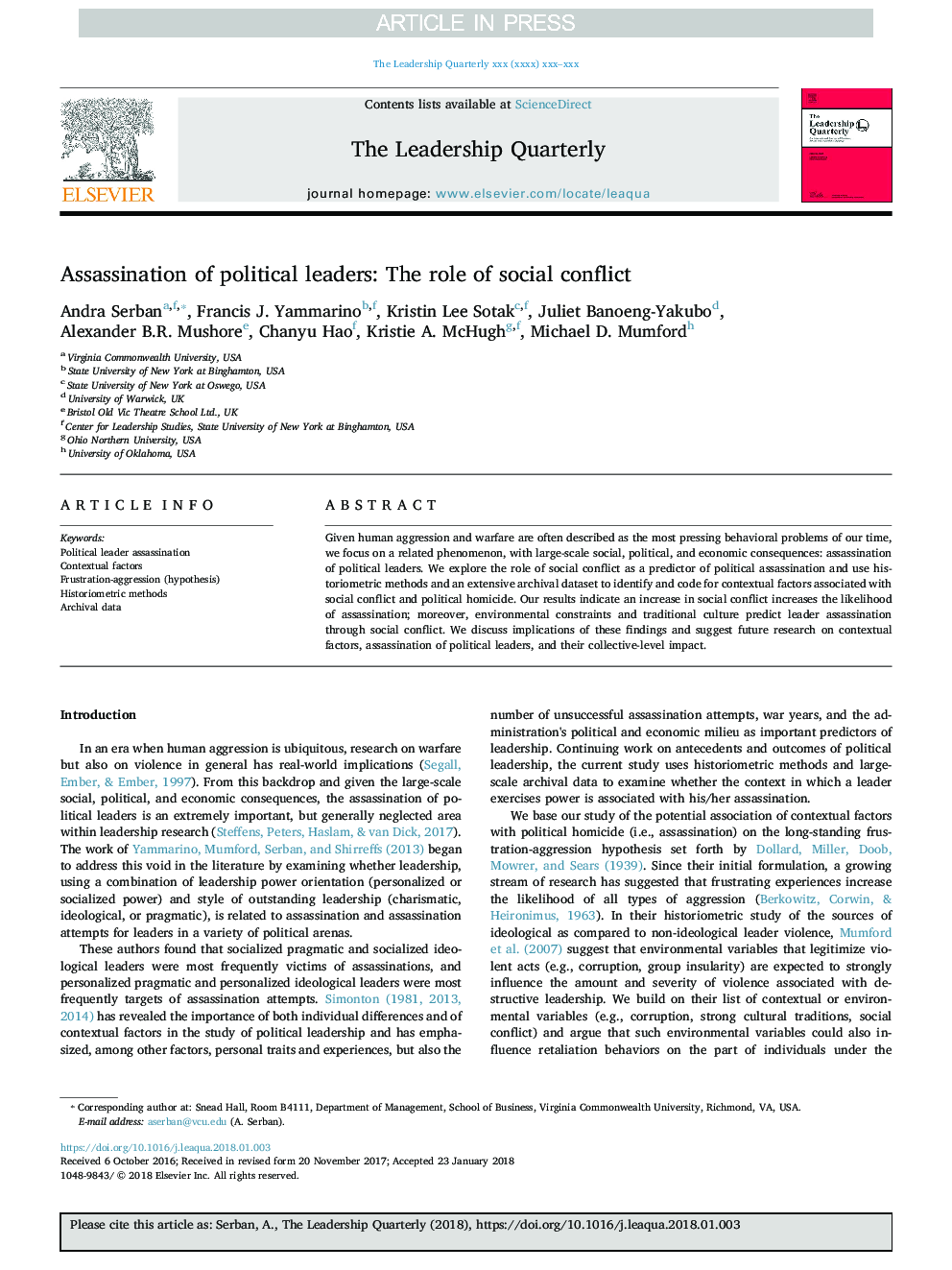| Article ID | Journal | Published Year | Pages | File Type |
|---|---|---|---|---|
| 7247724 | The Leadership Quarterly | 2018 | 19 Pages |
Abstract
Given human aggression and warfare are often described as the most pressing behavioral problems of our time, we focus on a related phenomenon, with large-scale social, political, and economic consequences: assassination of political leaders. We explore the role of social conflict as a predictor of political assassination and use historiometric methods and an extensive archival dataset to identify and code for contextual factors associated with social conflict and political homicide. Our results indicate an increase in social conflict increases the likelihood of assassination; moreover, environmental constraints and traditional culture predict leader assassination through social conflict. We discuss implications of these findings and suggest future research on contextual factors, assassination of political leaders, and their collective-level impact.
Keywords
Related Topics
Social Sciences and Humanities
Business, Management and Accounting
Business and International Management
Authors
Andra Serban, Francis J. Yammarino, Kristin Lee Sotak, Juliet Banoeng-Yakubo, Alexander B.R. Mushore, Chanyu Hao, Kristie A. McHugh, Michael D. Mumford,
